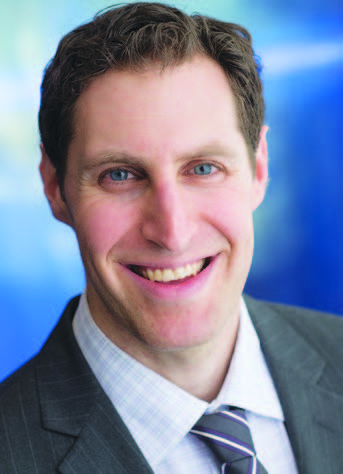Are doctors territorial? When it comes to quality care, we better be
 |
| Dr Eric Cadesky |
Being a doctor is no walk on the beach. Certainly it’s rewarding work and it’s a privilege to serve others, but recent headlines suggest that we have had sand thrown in our faces:
- The public is told that nurse practitioners can provide the same care as family doctors.[1]
- Naturopaths are legitimized through funding to treat patients after a car accident.[2]
- Some pharmacists want to give a diagnosis and then sell the treatment.[3]
Given the expected pushback from our profession, I was recently asked by a reporter why doctors are so territorial. My initial thought was, who is more collaborative than doctors? We work (most importantly) with our patients and their families, but also with pharmacists, kinesiologists, physio- and occupational therapists, social workers, speech and language therapists, administrators, staff, and many other health care professionals. We are asking for support to develop team-based care[4] so we can work together complementarily and practice to scope.[5]
But I have further reflected on this question. While we aren’t necessarily territorial over who provides care to our patients, happily sharing it with other health care professionals in team-based settings, we are protective of our patients and of the health care system we work in. We are ardent about giving the best care—one need only look at the many online forums to see how passionately doctors advocate to protect patients from unproven or unlikely investigations and treatments such as magnetic field therapy, chelation therapy, or consuming herbs such as kava kava. (On a side note, although language is important and there are historical reasons for its use, we ought to find another term for alternative medicine, because the alternative to medicine is not medicine.)
We are also territorial in advocating for our health care system,[6] or at least some improved form of it. Through initiatives like the Guidelines and Protocols Advisory Committee,[7] continuing education, and many quality-focused organizations, we do not have space for those who promote unnecessary tests[8] or incorrect or imaginary diagnoses.[9] We recognize cultural humility[10] but strive to balance that with science, even as movements with malicious intent[11] aim to erode our societal constructs of science and medicine.
It is through this lens of advocating for our patients that we can understand recent actions. We are happy to work with nurse practitioners and do so in many settings, but the skills—and, quite frankly, the value—of doctors are unparalleled. Pharmacists are our medication experts and an important part of the health care team, but the question of conflict of interest[12] diverges from the principle of patient-centredness.
And although much online debate eventually degrades to prove Godwin’s Law, we as doctors cannot stand by while some naturopaths and functional medicine doctors encourage people to pressure medical doctors to order tests[13] so that insurance will pay for it.
We enjoy serving our patients and putting them first. We want better ways to collaborate in teams where each health care professional works to their full scope. But when it comes to the well-being of our patients and our communities, we fiercely protect against wasteful investigation, shamanistic treatments, and fear-provoking propaganda. And if doing that makes us territorial, then let me be the first to draw a line in the sand.
—Eric Cadesky, MDCM, CCFP, FCFP
Doctors of BC President
References
1. Henning C. Nurse practitioners fill gaps as family doctor shortage grows. CBC News. Accessed 4 March 2019. www.cbc.ca/news/canada/british-columbia/nurse-practitioners-filling-gaps-family-doctor-shortage-1.4565750.
2. ICBC. Focusing on care, not legal costs. Accessed 4 March 2019. www.icbc.com/about-icbc/changing-auto-insurance-BC/Pages/focus-on-care-not-legal-costs.aspx.
3. Ireland N. Pharmacies want to give $15 strep throat tests—but pediatricians say they’re not accurate enough for kids. CBC News. Accessed 4 March 2019. www.cbc.ca/news/health/canadian-pharmacies-strep-throat-tests-second-opinion-1.4902431.
4. GPSC. Team-based care. Accessed 4 March 2019. www.gpscbc.ca/our-impact/team-based-care.
5. The College of Family Physicians of Canada. Best advice: Team-based care in the patient’s medical home. Accessed 4 March 2019. https://bccfp.bc.ca/wp-content/uploads/2015/06/Team-based-Care-in-PMH.pdf.
6. Nguyen N, Xu Y. Healthy Debate, Opinions. Why doctors must be advocates. Accessed 4 March 2019. https://healthydebate.ca/opinions/doctors-must-advocates.
7. Government of BC. Guidelines and Protocols Advisory Committee (GPAC). Accessed 4 March 2019. www2.gov.bc.ca/gov/content/health/practitioner-professional-resources/msp/committees/guidelines-and-protocols-advisory-committee-gpac.
8. Carroll AE. The JAMA Forum. The high costs of unnecessary care. Accessed 4 March 2019. https://jamanetwork.com/journals/jama/fullarticle/2662877.
9. Abassi L. American Council on Science and Health. Your adrenals are not fatigued, you are. Accessed 4 March 2019. www.acsh.org/news/2017/09/05/your-adrenals-are-not-fatigued-you-are-11782.
10. Doctors of BC. Supporting cultural safety for First Nations. Accessed 4 March 2019. www.doctorsofbc.ca/news/supporting-cultural-safety-first-nations.
11. Griffin A. The Independent. Anti-vaccine myths are being promoted by social media bots and Russian trolls, study finds. Accessed 4 March 2019. www.independent.co.uk/life-style/gadgets-and-tech/news/anti-vaccine-vaxx-bots-russian-trolls-twitter-facebook-study-a8505271.html.
12. Wilson JA. Pharmacist prescribing: Good medicine? BCMJ 2007;49:52-54.
13. Cole W. Dr Will Cole: The future of natural healthcare. These are the 6 labs you need to run if you are feeling off. Accessed 4 March 2019. https://drwillcole.com/these-are-the-6-labs-you-need-to-run-if-you-are-feeling-off.


Thank you Dr. Cadesky. As a fellow MD, I am pleased to see these points in writing. I wholeheartedly support what you have written. Thank you.